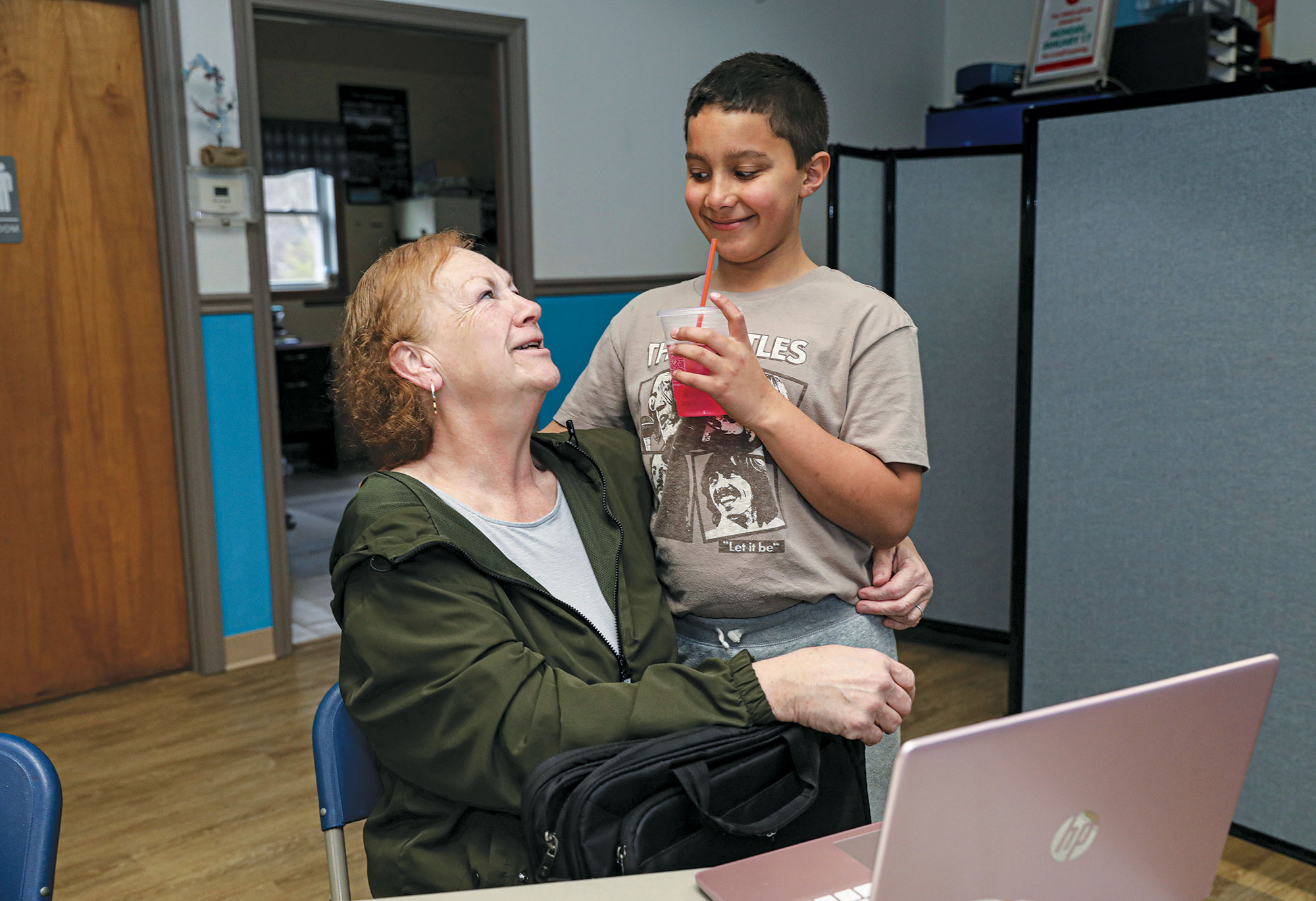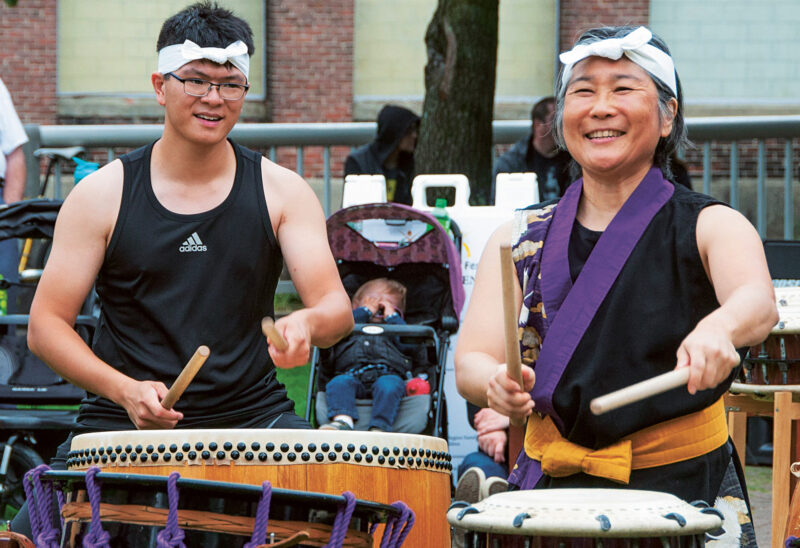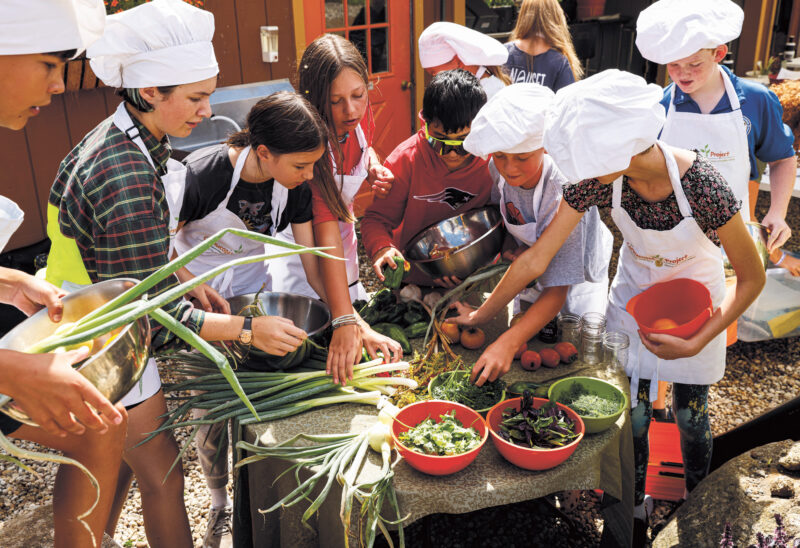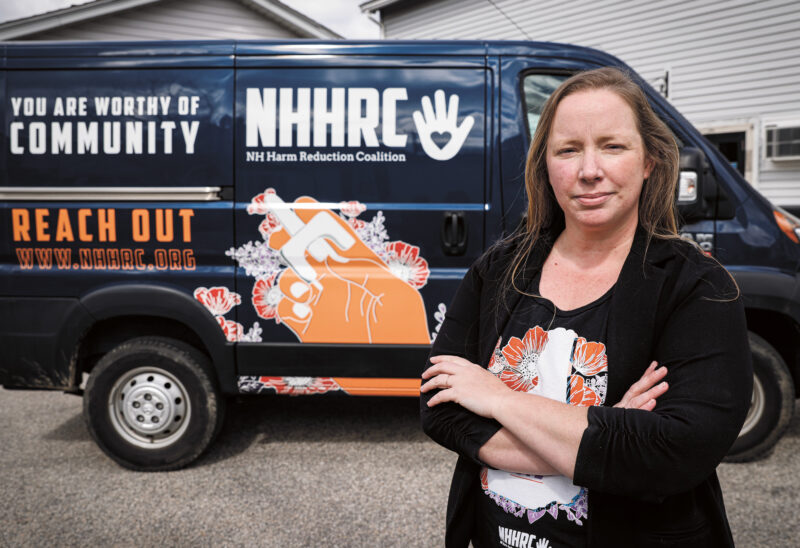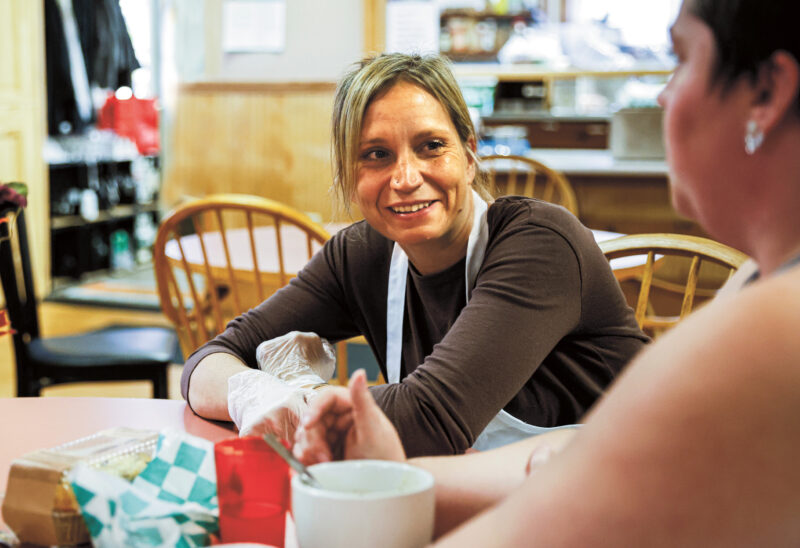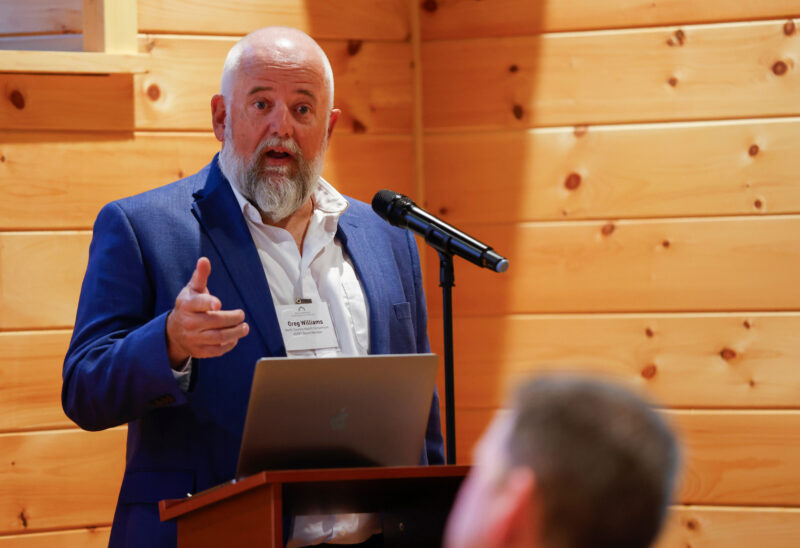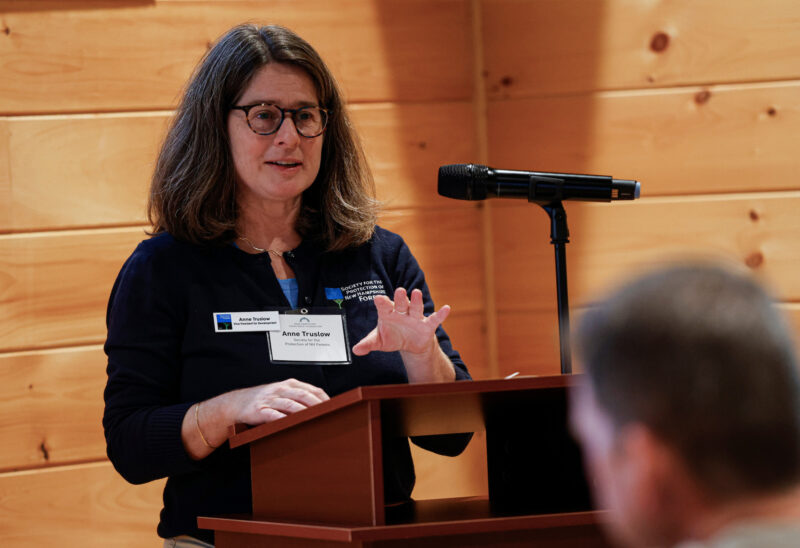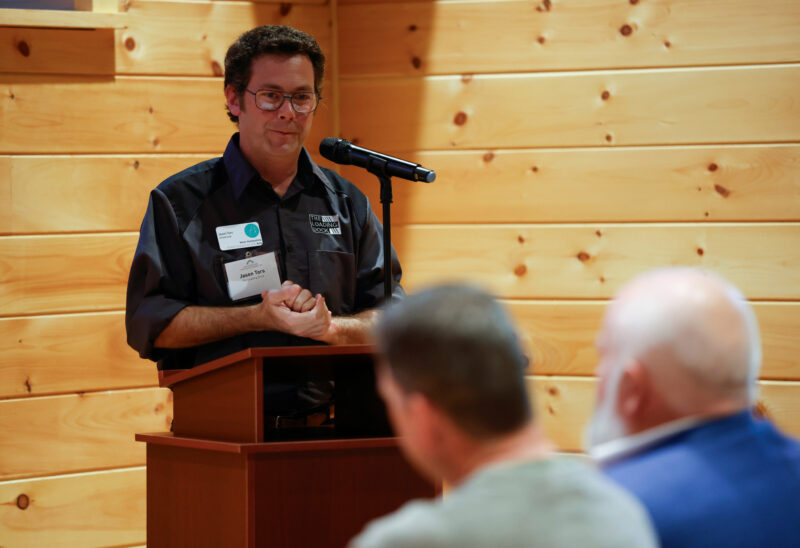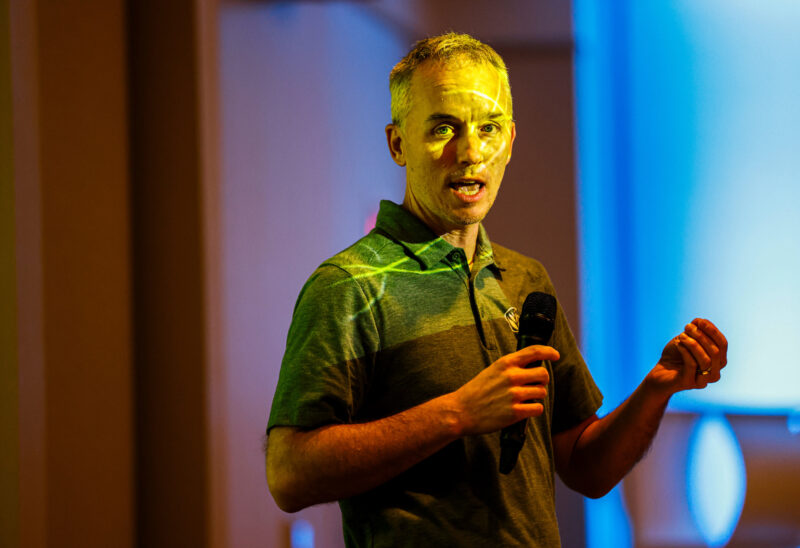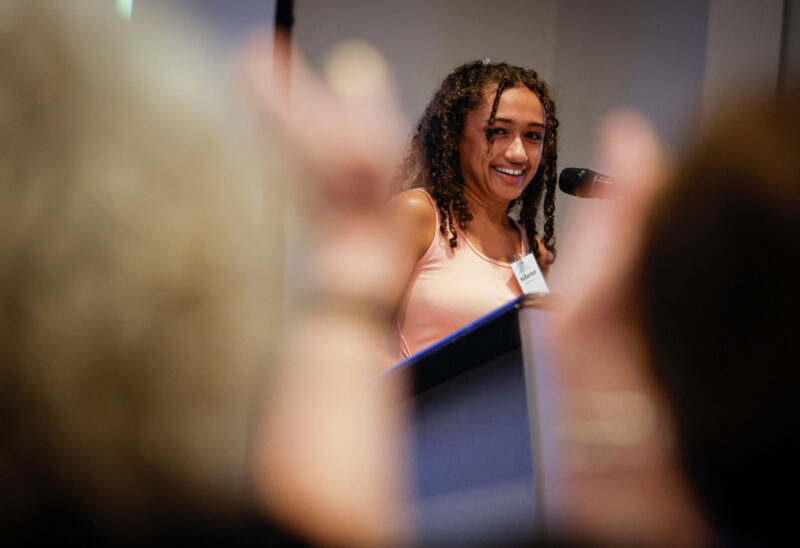Cindy was doing her best.
She was working a remote job for an insurance provider. Her two teenage daughters were home all day, and adapting to remote schooling. Her newborn granddaughter needed constant care — and diapers and formula. Then Cindy had to have surgery that landed her on short-term disability, diminishing her income. There was not enough money, and just going to the store was a perilous undertaking.
“I thought I was going to have a breakdown,” said the matriarch of this small family. “The stress level was extremely high, with Covid and working from home, and taking care of two teenagers and a grandbaby all by myself.”
But this family — like thousands around the state — had a lifeline in the form of the local family resource center. Cindy’s eldest had already been attending parenting classes at the Upper Room Family Resource Center in Derry, and Cindy was part of the Kinship Navigation Program for grandparents and other caregivers raising children.
“They showed up with food and diapers,” Cindy said, her voice wavering. “I could do Zoom classes with other grandparents. They were able to reach out and get me information on rental assistance.”
A network of 16 nonprofit family resource centers from Gorham to Peterborough provides critical support to thousands of families working to build better lives. The family resource center model brings a range of services for families together in one place — from prenatal, parenting and positive discipline classes to high school equivalency training, playtimes, family events and help for grandparents and other caregivers who are raising children. Some provide space for Head Start and other preschool programs; others provide free help preparing tax returns. No two centers are exactly the same, but all are hubs for family support, and the people who work in them are dogged champions of the families they serve.
“We are these little, unique entities that over the last five to ten years have grown into a very tight, intimately connected force,” said Brenda Guggisberg, director of the Upper Room.
As part of its “New Hampshire Tomorrow” initiative to help families and children thrive, the Charitable Foundation has worked in close collaboration with family resource centers to determine need and strategy to support the strengthening of those organizations.
Ten of the state’s family resource centers participated in a financial resiliency project sponsored by the Foundation to help strengthen core operations. Projects tailored to each center helped them adapt to the financial and business implications of the pandemic.
“Those projects really allowed us to look at the bigger picture and structure ourselves to be able to absorb all the things were coming at us,” said Erin Pettengill of the Lakes Region Family Resource Center in Laconia and chair of Family Support NH, the state’s coalition of family resource centers.
Family resource centers adapted in ingenious and heroic ways to continue to provide services — and meet increased and more complex needs — despite the challenges of Covid. The Foundation has made grants of flexible operating support to family resource centers around the state. “Operating funds are priceless for us,” said Pettengill. “If we didn’t have flexible funding during Covid, the state of New Hampshire would have a lot more families that are struggling with basic needs.”
Foundation staff collaborated with the New Hampshire Children’s Trust and Family Support NH to design a program to get more direct support to families in need. Funds, administered by the Children’s Trust, have been distributed to centers to help meet families’ basic needs — anything from diapers to car repairs to dental bills to firewood.
The availability of direct support, said Margaret Nelson of the River Center in Peterborough, will help resource centers reach more families. “If we order a cord of wood for a family and then they quickly need more,” Nelson said, “we can ask, systemically, ‘What is going on, and how can we help you with that?’”
And funding to the Children’s Trust, coupled with advocacy that helped secure state funding for the network of resource centers, helped bring in additional federal funding for programs that support families.
“Family resource centers provide the kinds of supports that can make a huge difference in the ultimate outcomes for children,” said Christina D’Allesandro, Foundation director of family and youth supports. “Staff in these centers are doing incredible work, with very tight resources, to help families address complex sets of challenges.”
Family resource centers are there to support all families — regardless of income or circumstance.
“Every single one of us needs support at some time or other,” said Nelson, of the River Center. “There is a commonality we all share — whether we are a little kid or elderly person or family with a baby or a teen or empty nesters. The role of the family resource center is to get people connected to what they need.”
The other day, Cindy saw a Facebook post from a father who had unexpectedly found himself solo-parenting a three-year-old. She knew just who to tell him to call.

